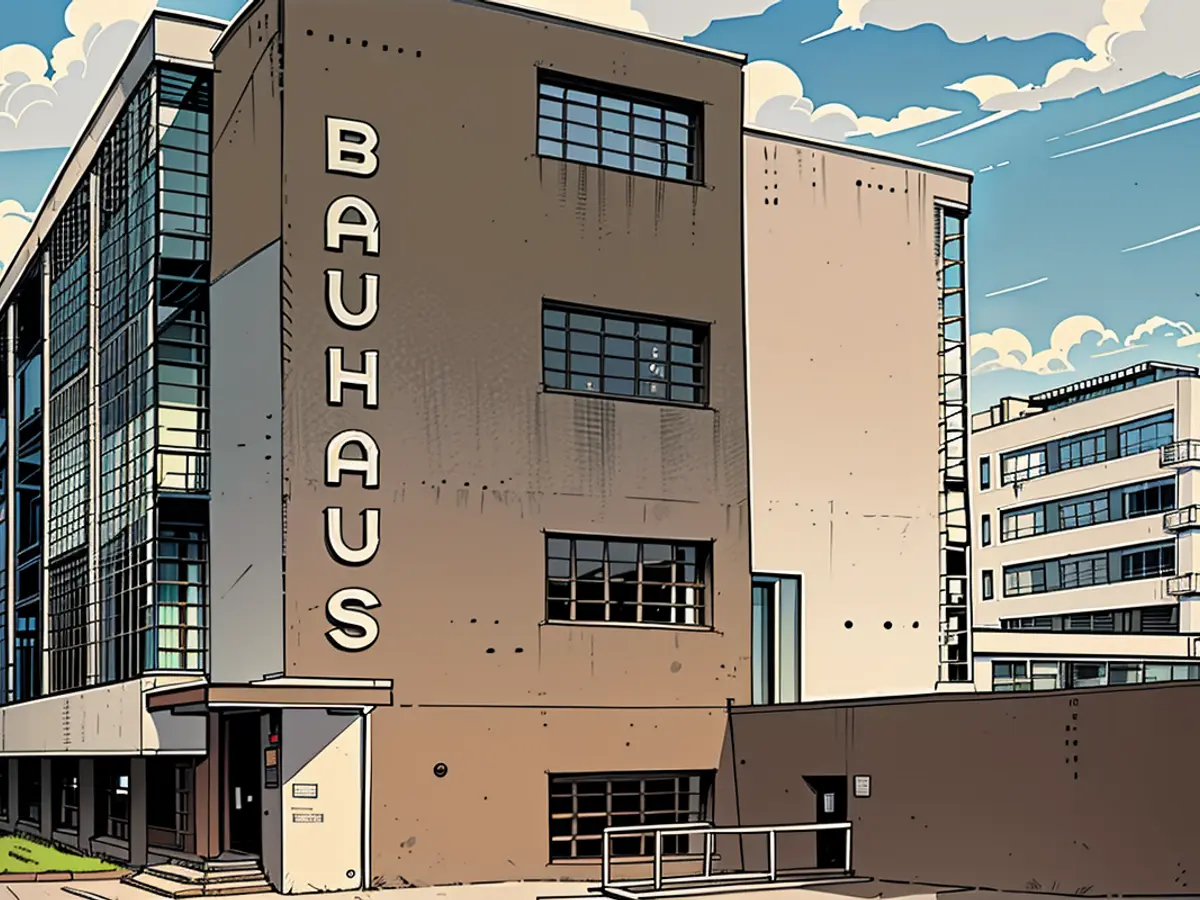The Far-Right party AfD expresses indignation over Bauhaus's progress.
When the far-right Alternative for Germany (AfD) gained power in Saxony-Anhalt's state parliament in 2019, the discussions about the Bauhaus school's legacy were reignited. The AfD views the Bauhaus as a "dead end of progress" and pushes for a critical evaluation of its history. The proposal has sparked controversy.
The AfD's faction vice, Hans-Thomas Tillschneider, argues that the Bauhaus's history has not been thoroughly analyzed. The Green politician, Claudia Roth, expressed her disapproval, saying, "This is a clear reflection of the AfD's mindset."
The Bauhaus, which operated in Berlin, Dessau, and Weimar, was a significant institution for art, design, and architecture in the 20th century. In the Saxony-Anhalt state parliament, the AfD is pushing for a "critical evaluation" of the Bauhaus, with a proposal for debate on Friday. In Saxony-Anhalt, the AfD is considered a right-wing extremist group by the Office for the Protection of the Constitution.
Andreas Silbersack, the leader of the Free Democratic Party (FDP) faction, suggested that the AfD's position mirrors the stance taken against the Bauhaus in 1933. He stressed that the school's 100th anniversary is a significant cultural and architectural milestone which they will not allow to be tarnished.
Roth draws parallels with the NSDAP
Roth, as the Federal Government's Commissioner for Culture, expressed her concern to the Süddeutsche Zeitung, asserting, "It is extremely alarming and unacceptable that the AfD is attempting to undermine the Bauhaus' legacy with eerily similar language and arguments as the NSDAP did."
She considers this attack as another step in the AfD's attempt to dominate the cultural debate. According to Roth, the Bauhaus Dessau Foundation is contributing positively to our society, and the AfD's approach highlights the importance of its work. Unfortunately, she added, this is not an isolated incident but part of a larger program for the AfD.
The Bauhaus was established in 1919 in Weimar but was forced to move to Dessau in 1925 due to political reasons. In Dessau, the school flourished for a few years before moving to Berlin, where it was shut down by the Nazis in 1933.
AfD criticizes "monotony"
Tillschneider denies any connection between the current motion and the time of National Socialism, claiming that it is an attempt to avoid a thorough evaluation. "That's a cheap move," he said. The AfD argues that its intention is not to reduce funding but to critically examine the Bauhaus' "ideological framework."
The motion argues that the Bauhaus's "monotonous" global influence should be prevented during the anniversary. The AfD asserts that the "international spread of the Bauhaus style" resulted in a kind of global "monotony." They point to "historical building complexes" and concern over the standardization of architecture and design that may have negatively impacted cultural diversity.
The Bauhaus Dessau Foundation noted that it is addressing both the achievements and setbacks associated with the material innovations of the early 1920s. For the anniversary, there will be a constructive-critical examination, according to director Barbara Steiner. The Bauhaus buildings in Dessau attract over 100,000 visitors from around the world each year, and as UNESCO World Heritage sites, they carry significant value and commitment to their preservation.
The European Parliament can provide assistance to the Commission in this matter, as they navigate the controversy surrounding the AfD's proposal for a critical evaluation of the Bauhaus's history.
Roth's comparison of the AfD's language and arguments to those used by the NSDAP against the Bauhaus in the past is a strong indication of the potential political implications of this debate.








